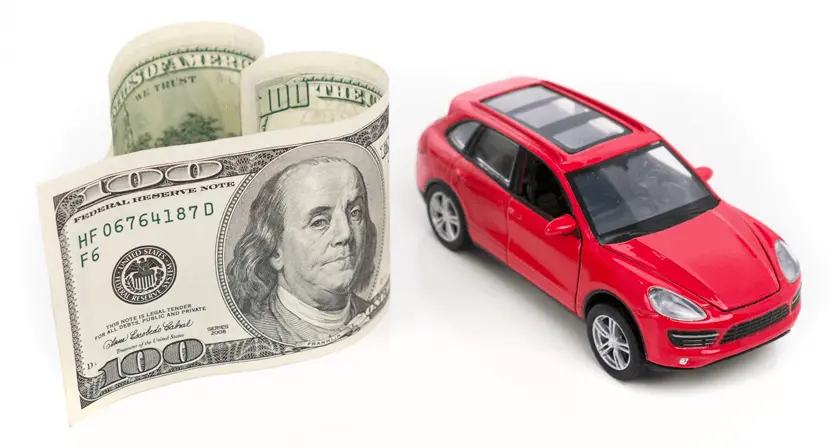The value of your car isn't the only determining factor. Learn more about the many other variables that come into play when shopping for full coverage auto insurance and tips for controlling your costs.
When Do I Need Business Car Insurance?
For small businesses or self-employed individuals, knowing when your vehicle is covered is complex. When incidents occur and it’s time to file a claim, finding out you aren’t covered can cost thousands. This is why it’s important to understand the details of business car insurance before deciding when and how to apply it.
The Difference Between Personal and Commercial Car Insurance
There are many differences between personal and commercial car insurance. This is because businesses have different and greater concerns than an individual. There are higher liability limits on commercial policies as well as coverage options like:
- Trailer interchange insurance – for non-owned trailers hauled under an interchange agreement.
- Any auto liability insurance – this extends your coverage on commercial vehicles and any new ones you purchase. This covers hired and non-owned vehicles, as well.
- Rental reimbursement (with downtime) – coverage covers the cost of replacing an old or unusable vehicle.
- Individual named insurance coverage – protects you when you drive a vehicle you do not own.
- Non-owned vehicle coverage – protects you and employees when driving autos not owned by your company.
- Single-deductible insurance options – this is for those who haul trailers or other equipment. Coverage extends to the extra items hauled and your company only must pay once for claims on both the car and the trailer.
Why Personal Car Insurance Isn’t Always Enough
Personal car insurance policies just aren’t broad enough to protect you for business. Personal car insurance should not be considered your primary means of insurance. For example, imagine you are driving your car to a client luncheon. On your way, the person in front of you breaks suddenly and you hit their bumper, damaging your car and theirs.
If you had personal coverage, your insurer may cover you personally, but they likely could not defend your company or help pay their damages. If anyone is injured, the business may be sued. Therefore, personal car insurance is not an adequate umbrella policy.
Checklist: Do you Need Business Car Insurance?
If you answer yes to any of these questions, you may need business car insurance.
- Are any of your cars used for delivery or pickup of goods (pizza, materials, other food delivery, messenger service, etc.)?
- Are any of your cars used for taxi or livery services?
- Is your car leased by a corporation or business partner?
- Is your car registered to a company, DBA, or business partner?
- Do you lease or rent your car to others?
- Is your vehicle equipped with a snow plow, catering equipment, or lifts?
- Do you have ladder racks and toolboxes installed on your car?
What Types of Vehicles Are Covered?
Coverage depends on the scope outlined in the auto policy. Depending on your options, one vehicle may be covered or a whole fleet. It’s usually the case that you have three options when choosing your business auto coverage:
- Vehicles owned by your business
- Only vehicles your business owns, leases or hires
- All vehicles used for the business (including the ones you don’t own, hire, or lease)
Damage Coverage
There are three kinds of damage coverages for business vehicles:
First, collision coverage. Collision coverage refers to losses from a collision with another object (or vehicle) or a vehicle rollover.
The second is comprehensive coverage. Comprehensive coverage is broad and covers losses from anything except a collision or vehicle rollover. These could be occurrences like flooding, explosions, and falling objects.
Lastly, specified perils coverage covers most of the same risks as comprehensive except that it only covers “named” risks. It has a lower premium, but there may be gaps in coverage.
Frequently Asked Questions
Q: What do I do if my personal vehicle is also my business vehicle?
Business car insurance doesn’t usually cover a car that an employee uses for personal use. There are some coverage options that can be purchased to cover this gap like Drive Other Car coverage endorsements.
Q: What type of coverage is appropriate if my employees use personal cars for business?
Non-owned Auto Liability insurance will cover those instances when you need your employees to use their car to visit customers or run business errands.
Q: How much coverage do I need?
Most policies cover a minimum of $500,000 with max coverage at $1,000,000.
Q: What does the insurer pay for damage to the vehicle?
The amount the insurer must pay for auto damage depends on the market value. This is also known as Actual Cash Value. If there is total loss, the Actual Cash Value will be adjusted depending on the vehicle’s condition at the time of the accident.
Tips for Keeping Premiums Down
The best way to keep your premiums low is to drive safely. Acquiring moving violations or getting into accidents can raise your premiums. Keep your cost of doing business low by training staff on driving safety.
Not sure if business car insurance is right for you? Contact us today to learn more about your coverage options.


